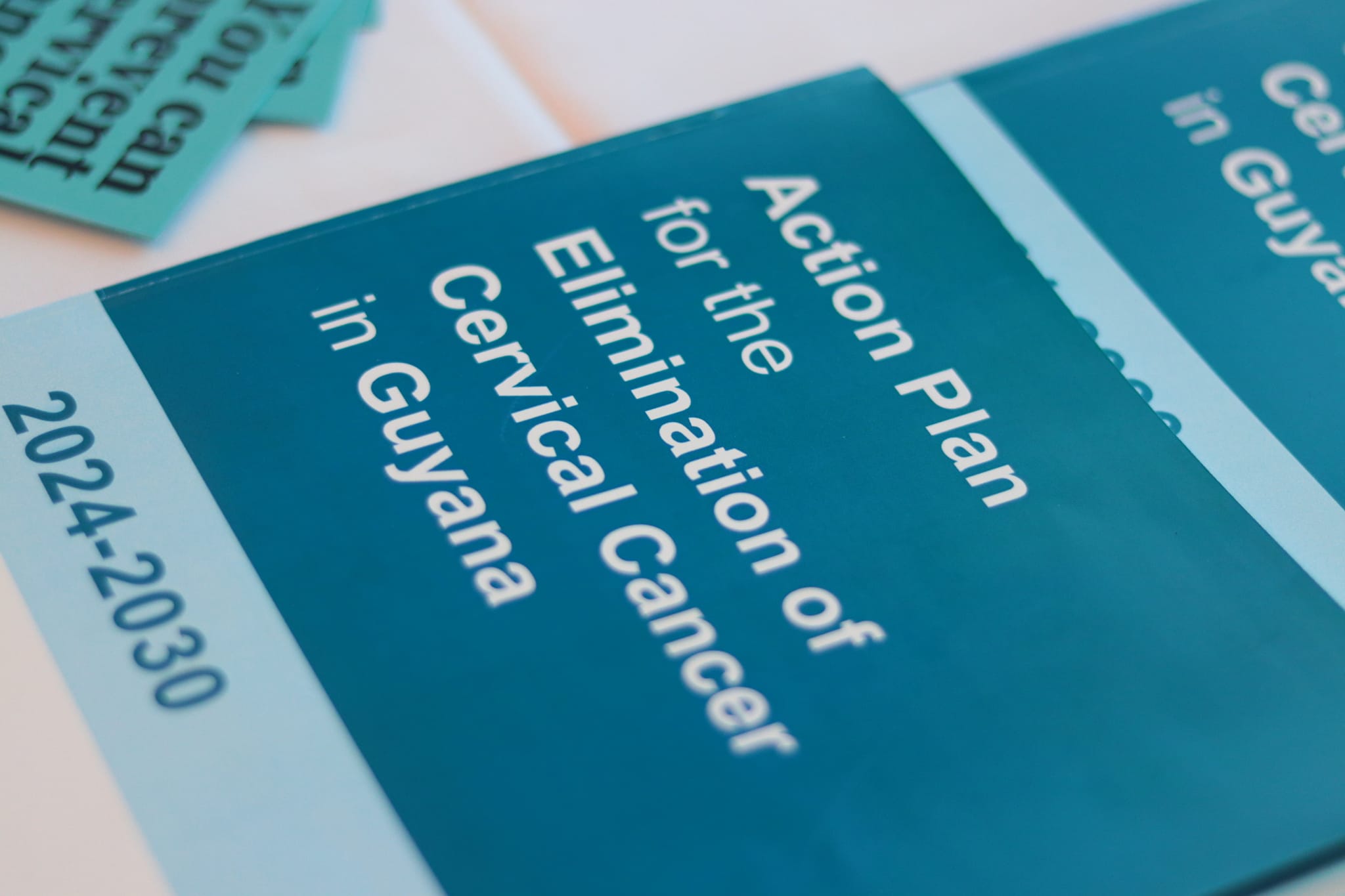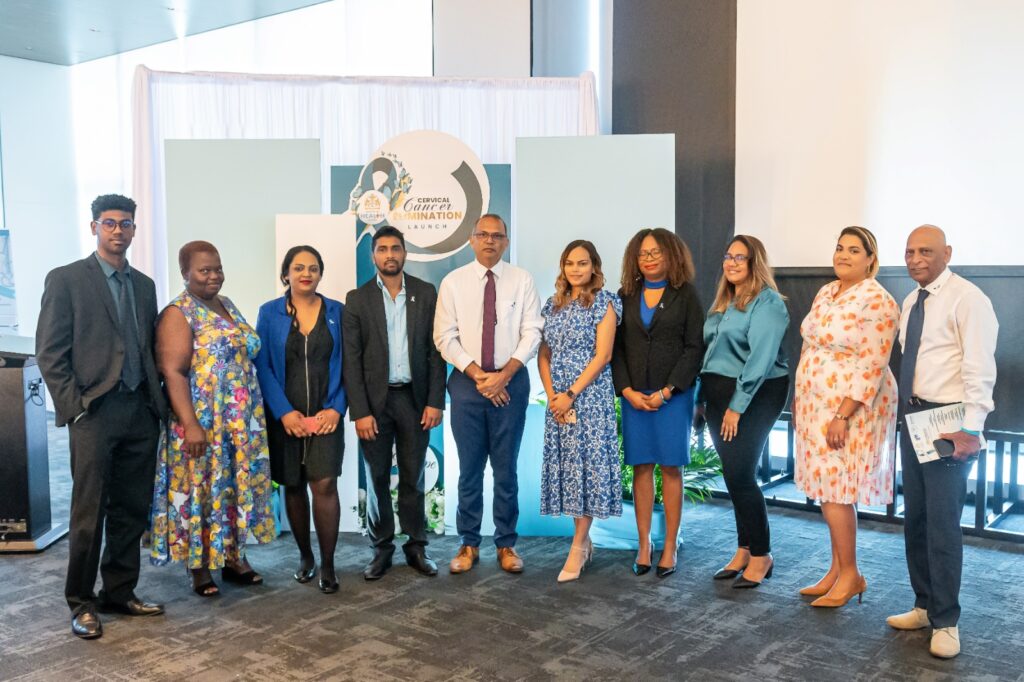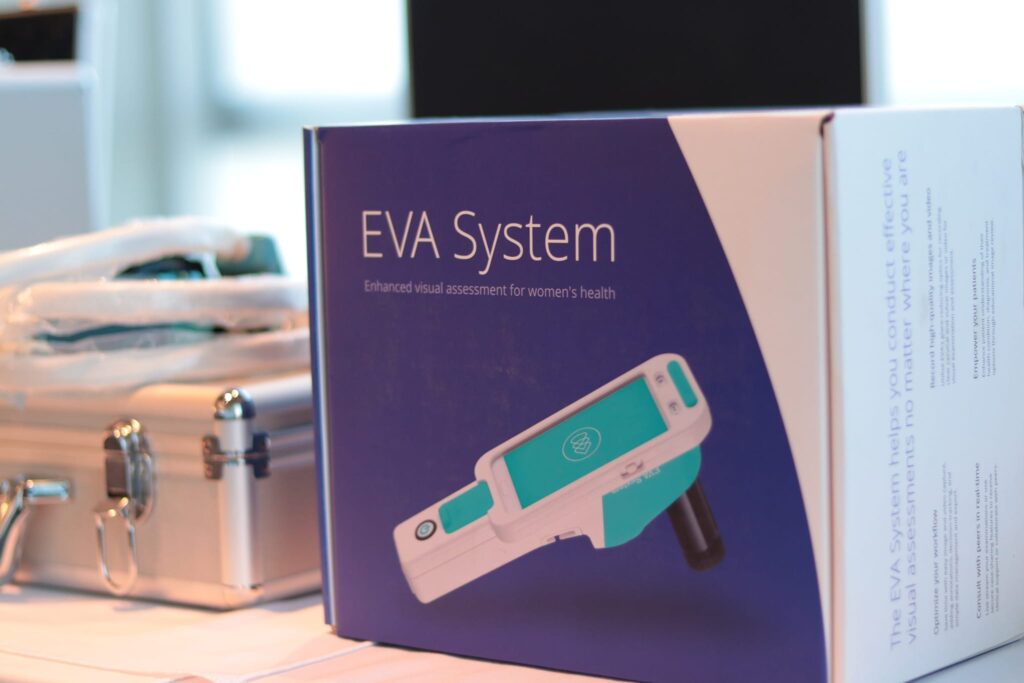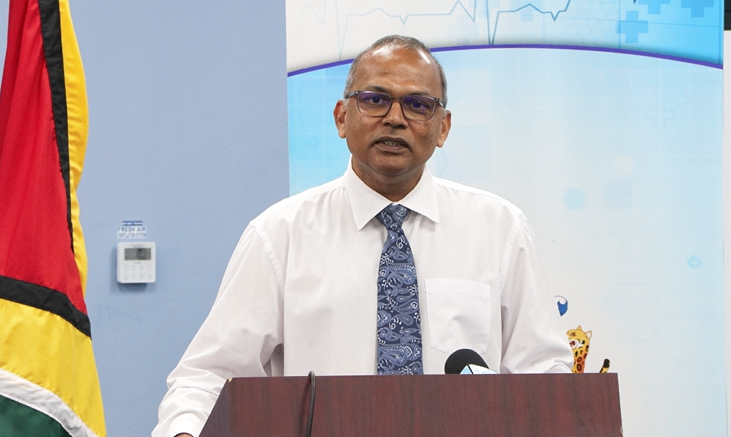
An ambitious goal to eliminate cervical cancer in Guyana was launched on Friday by the Ministry of Health with a set target of providing screening to at least 70 per cent of the country’s woman population.
The ministry’s cervical cancer elimination strategy plan was distributed to stakeholders during a ceremony at the Pegasus Corporate Suites in Georgetown on Friday.
Traditionally, pap smears and Visual Inspection with Acetic Acid (VIA) tests are done to check for signs of the cancer but as of next week, public testing for the Human Papilloma Virus (HPV), using equipment donated by the Government of China, will be available.
These tests are often about $25,000 at private institutions, Health Minister Dr Frank Anthony previously said.

Focus on cervical cancer is necessary as it is the second most prevalent cancer that causes over 34,000 deaths in the Americas. Over the yeas there were several challenges in finalising such a strategy.
HPV is the leading cause for cervical cancer. Other causes are immunodeficiency and smoking.
“If we screen people, and you’re able to detect abnormal cells early, then we can prevent any of the complications from happening… but if we wait until people get all kinds of complications, of course it’s going to be more difficult.
“We want to achieve 70 per cent of persons being screened, of this 70 per cent, we want to ensure those who we detect cancer cells, we want to make sure that 90% of them will have access to treatment,” Dr Anthony said.
The ministry will also distribute testing kits as it tackles the detrimental disease. It is also considering ways to establish plan to offer branchy-therapy which is another form of treatment for the cancer.

Ensuring that at least 70 per cent of women within the reproductive age of 21 – 60 undergo screening will require massive collaboration. The ministry is collaborating with the Pan American Health Organisation (PAHO) and non-governmental organisations to ensure nationwide awareness is attained.
The HPV vaccine is available for children ages nine to 17 and adults ages 18 to 45. Going forward, the ministry will ramp up its vaccination programme. The vaccination uptake for children under five years old is considerably high but targets set for the costly HPV vaccine is relatively low at 40 per cent.
The plan of action is to go to schools and communities to spread awareness and vaccinate persons.





